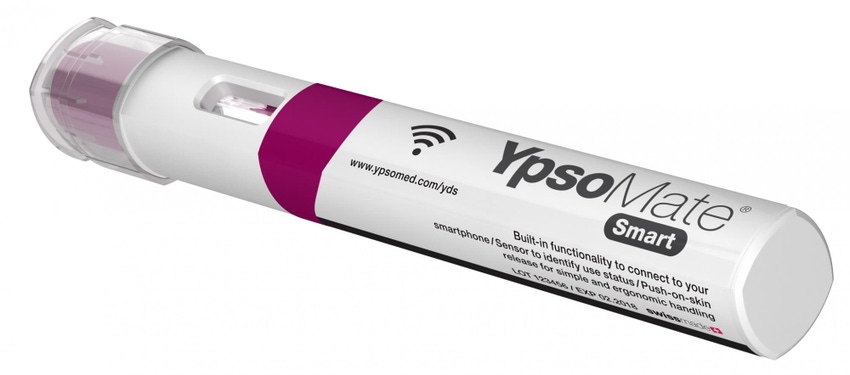January 14, 2016

The Internet of Things is expected to influence healthcare in numerous ways, and according to a recent article in Forbes, it offers significant market opportunities.
For such connectedness to be ubiquitous enough for great change in healthcare, however, the unit cost of smart products can be a concern. “There’s opportunity in the Internet of Things, but conventional silicon-based electronics are not viable solutions in terms of volume and price points,” says Bill Cummings, vice president of marketing and communications for Thinfilm Electronics ASA. “You’ve got to get the cost point low and the product volumes to ultra-high levels to help make a foray into disposable medical devices possible.”
Cummings believes that the company’s printed electronics offer the needed economies of scale. Given the technology’s “ultra-high volumes,” Thinfilm is able to offer “bits of intelligence at the disposable level,” he says.
Thinfilm’s NFC OpenSense wireless tags are provided as thin, flexible labels supplied on rolls. They offer memory, logic, and an extended sensing loop and are able to detect both the “factory-sealed” and “opened” states of a given product, Cummings explains. Another product Thinfilm offers through its partner Xerox – Thinfilm Memory – has already been put to use for brand protection and authentication in automated pharmacy packaging by Global Factories, he says, and Thinfilm now hopes to transform parenteral drug delivery.
The company recently announced a partnership with drug-delivery systems developer Ypsomed Group in which Thinfilm’s NFC OpenSense technology will be integrated into YpsoMate autoinjectors. Triggered by push-on-skin activation, the autoinjectors allow patients to self-deliver treatments for chronic conditions. The tags can detect the factory-sealed state of the product as well as the open state before and after injection, wirelessly deliver content to patients through the tap of a smartphone, and record patients’ interactions with the device in the cloud, Thinfilm reports.
The NFC OpenSense tags will work together with a custom mobile app to remind patients to comply with injection regimens and refill schedules as well as track and report dosing to doctors.
“Studies show that 50% of patients do not adhere to their medication regimens, and there are patient outcomes implications as well as financial implications,” says Cummings. He believes that his firm’s work with Ypsomed could make a difference. “Patients tap their smart phone to the YpsoMate autoinjector to detect the sealed package, inject their dose, then tap a second time, and the NFC tag can determine that the injection has taken place and send the details to the cloud,” he explains. “Parameters can be set up for auto alerts on missed doses to help patients manage their care.”
Brand owners can also build in additional functionality. “It’s up to the brand to determine the messaging,” Cummings explains. “They could push an authentication message, report a recall if needed, or send out instructional messages.”
The NFC OpenSense wireless tags can also be developed to meet specific specifications and form factors. “We can provide prototypes for testing,” says Cummings. “We can help engineers with considerations for incorporating NFC tags into products and packaging. It can be a challenge. Printed electronics are relatively new, but businesses are learning more and more about the technology and how it can deliver benefits.” He adds that it helps to get involved early in product design to determine the role printed electronics can play.
Ypsomed demonstrated the YpsoMate Smart device with NFC OpenSense tag technology at PDA’s “The Universe of Pre-filled Syringes and Injection Devices” held November 3-4.
Ypsomed will be exhibiting at Booth 710 the upcoming Pharmapack Europe in Paris February 10-11. At Pharmapack Europe, attendees can find hundreds of packaging solution providers and drug delivery technology suppliers that serve the pharmaceutical, biopharmaceutical, and veterinary markets.
For more details, visit www.thinfilm.no and www.ypsomed.com.
About the Author(s)
You May Also Like




